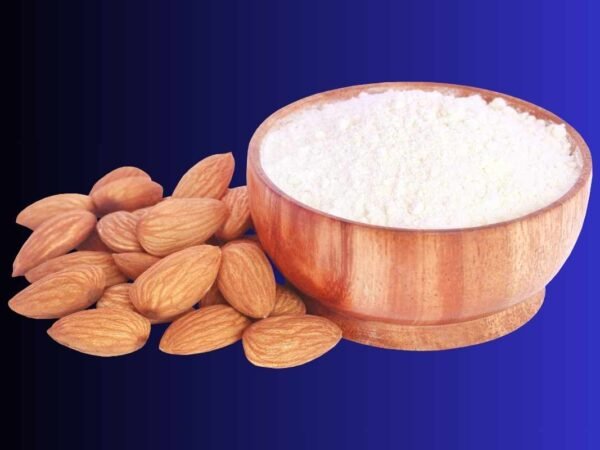Did you know that almond milk, a popular dairy alternative, has sparked controversy in recent years? Despite its surge in popularity, this plant-based drink has become the subject of heated debates. From environmental concerns to potential allergic reactions, the controversies surrounding almond milk and soybeans have left many consumers puzzled. As more people turn to plant-based diets and non-dairy alternatives like soybeans, understanding the contentious issues surrounding almond milk becomes increasingly important.
Key Takeaways
- Almond milk production has environmental implications, prompting consumers to consider the broader impact of their choices.
- Environmental concerns surrounding almond milk production highlight the importance of sustainable farming practices, water usage, and almonds.
- Ethical considerations in almond milk production urge consumers to support companies that prioritize fair labor practices and ethical sourcing.
- Health implications of almond milk and cows emphasize the need for consumers to be aware of potential additives, calcium, and protein in milk alternatives.
- The sustainability debate underscores the necessity for consumers to seek out transparent information about the overall environmental impact of milk alternatives.
- Exploring alternatives to almond milk empowers consumers to make informed choice based on their values, protein needs, and environmental concerns.
Almond Milk Production
Water Usage
Almond milk production is a contentious issue due to its significant water usage. It takes about 130 pints of water to produce a single glass of almond milk, which has raised concerns about the sustainability of this practice. The water footprint of almond milk is a point of contention for environmentalists and conservationists who emphasize the importance of conserving water resources. This excessive water consumption in almond cultivation contributes to the ongoing debate surrounding its environmental impact.
The reliance on bees for pollination in almond orchards also adds to the controversy surrounding almond milk production. Large-scale almond farming may contribute to the decline in bee populations, impacting their health and overall population. During almond bloom, there's a heavy demand for bees, affecting their well-being and potentially leading to adverse effects on their population. This dependence on bee pollination has sparked discussions regarding its contribution to the broader issue of declining bee populations, raising concerns among environmental advocates.
Carbon Footprint
While it's true that almond milk production has a lower carbon footprint compared to dairy milk, there are still debates surrounding its overall impact on climate change. The transportation of almonds from farms to processing facilities and then onto store shelves significantly contributes to the product's overall carbon footprint. As such, despite being touted as an environmentally friendly alternative, the actual carbon emissions from almond milk production are under scrutiny within scientific communities and environmental organizations.
On another note, some brands have made efforts towards using sustainable packaging materials for their products; however, packaging waste from widespread consumption raises valid concerns about its environmental impact. Sustainable packaging initiatives aim at reducing this negative effect by promoting eco-friendly practices within the industry while addressing consumer worries about excess waste generated by popularizing almond milk as an alternative beverage option.
Environmental Concerns
Comparison with Dairy
Almond milk has a lower environmental impact compared to dairy milk production. Unlike almond farming, which uses less water and land, dairy farming is a significant contributor to greenhouse gas emissions. The water usage in dairy farming far exceeds that of almond milk production. For example, it takes about 30 gallons of water to produce one glass of cow's milk, while almond milk requires significantly less.
When considering the environmental impact, it's important to note that almond milk outshines dairy in terms of resource consumption and emissions. The comparison clearly shows that almond milk is more sustainable than traditional dairy products.
Comparison with Oat Milk
Oat milk production generally requires less water than almond milk production. However, the environmental impact of oat and almond milk varies based on different factors such as transportation, processing methods, and agricultural practices used in their respective productions. While oat may seem like an environmentally friendly alternative due to its lower water usage during cultivation, other aspects need consideration for a comprehensive understanding.
The sustainability profile differs between oat and almond milks; therefore, consumers should weigh various factors when deciding which option aligns best with their values regarding environmental impact.
Impact on Ecosystems
Almond farming can lead to habitat loss and ecosystem disruption due to the extensive land use required for orchards. Pesticide use in almond orchards poses risks to local ecosystems by contaminating soil and nearby bodies of water. This practice can have detrimental effects on wildlife populations living around these areas.
Moreover, the expansion of almond orchards impacts biodiversity and natural habitats as native plant species are often replaced by monoculture crops like almonds.
Ethical Considerations
The impact on bee populations is a major point of contention. Diversifying crops in agricultural areas can provide better forage for bees, which supports their health and well-being. By supporting organic and regenerative agriculture, we can create environments that benefit bee populations.
Planting wildflowers and native plants also plays a crucial role in creating bee-friendly environments. These practices not only support bees but also contribute to the overall biodiversity of agricultural areas. When farmers prioritize diversification and sustainable practices, they actively contribute to the preservation of bee populations.
In terms of farming practices, sustainable approaches aim to minimize the environmental impact associated with almond cultivation. Regenerative agriculture practices play a significant role in mitigating the effects of almond farming on the environment. By implementing these practices, farmers can work towards restoring soil health and enhancing ecosystem resilience.
Organic almond farming significantly reduces reliance on synthetic chemicals while promoting soil health. This reduction in chemical usage has positive implications for both environmental sustainability and human health.
Health Implications
Benefits and Side Effects
Almond milk offers a dairy-free alternative with potential health benefits. It is a good news for those who are lactose intolerant or have dairy allergies. This means they can still enjoy creamy, nutty milk without the discomfort. However, there's a flip side to this story. Concerns about additives and thickeners in commercial almond milk products exist. Some brands add synthetic nutrients to compensate for the lack of natural nutrients in almonds, which may not be as beneficial as consuming whole foods.
Excessive consumption of certain brands may lead to unintended health consequences such as digestive issues or allergic reactions due to added ingredients like carrageenan or guar gum used for thickening. While almond milk has its pros, it's essential for consumers to be aware of these potential downsides before making it a staple in their diets.
Unsweetened Almond Milk
Choosing unsweetened almond milk over sweetened varieties provides several advantages. By opting for unsweetened options, individuals can significantly reduce their sugar intake without sacrificing taste or creaminess. This is particularly good news for those looking to cut down on added sugars without compromising on flavor.
Unsweetened almond milk also serves as a healthier alternative compared to sweetened versions that often contain high amounts of added sugars and artificial flavors. This means that by selecting unsweetened almond milk, individuals can support lower sugar consumption while still enjoying the benefits of this plant-based beverage.
Sustainability Debate
Plant-Based vs Dairy Milk
Plant-based milks have gained attention for their lower environmental impact compared to dairy milk. The dairy industry's practices contribute significantly to greenhouse gas emissions, making it a major concern for environmentally conscious consumers. For instance, almond milk production requires less water and land than traditional dairy farming, reducing the strain on natural resources.
Consumers concerned about the environmental impact of dairy products are turning to plant-based milks as an alternative that aligns with their sustainability values. By choosing almond milk over cow's milk, individuals can reduce their carbon footprint and support more eco-friendly food production methods.
Sustainable Food Choices
Making informed choices about food sources is crucial in promoting sustainable living practices. When individuals opt for almond milk instead of dairy milk, they actively contribute to sustainable food systems by supporting environmentally friendly agricultural practices. This includes reduced use of pesticides and fertilizers associated with conventional dairy farming.
Moreover, supporting sustainable food choices also promotes long-term ecological balance by minimizing the negative impacts of intensive animal agriculture on soil health and biodiversity. By incorporating almond milk into their diets, consumers play a role in fostering a more balanced ecosystem while addressing concerns related to health implications associated with traditional dairy consumption.
Alternatives to Almond Milk
Oat Milk Environmental Considerations
Oat milk, a popular alternative to almond milk, has its own set of environmental considerations. The production of oat milk involves water usage, land requirements, and processing methods. Unlike almonds, which require a significant amount of water to grow, oats generally require less water. However, the sustainability profile of oat milk is influenced by various factors such as sourcing and processing techniques.
For example, organic oat farming practices can contribute positively to the environment by reducing chemical inputs and promoting soil health. On the other hand, non-organic oat farming may involve the use of synthetic fertilizers and pesticides that can have negative effects on ecosystems. Furthermore, the processing methods used in turning oats into milk also play a role in determining its overall environmental impact.
The growing popularity of oat milk raises questions about its sustainability compared to other plant-based milks like almond or soy. While it may have certain advantages over almond milk in terms of water usage during cultivation, understanding its complete ecological footprint requires analyzing all stages from farm to table.
Other Plant-Based Options
Apart from oat and almond milks, there are several other plant-based alternatives with their unique environmental footprints. For instance,
-
Rice Milk: It is made from milled rice and often has a sweeter taste than other alternatives but typically requires more water for production.
-
Soy Milk: Derived from soybeans which are relatively easy to cultivate but might raise concerns related to deforestation for soybean farming.
-
Coconut Milk: Made from grated coconut flesh blended with water; however, there are concerns about land use issues related to coconut cultivation.
Each option presents trade-offs between resource consumption during production versus nutritional value or taste preferences for consumers. When considering these alternative options alongside almond milk's controversial aspects regarding water usage and bee pollination dependency (as discussed in the previous section), individuals must weigh their respective environmental impacts before making choices.
Consumer Misconceptions
Reevaluating choices involves considering the broader implications on the environment and ecosystems. Evaluating the sustainability of food choices encourages mindful consumption habits. By choosing almond milk, consumers may believe they are making an environmentally friendly choice due to its plant-based nature. However, it's essential to recognize that almond production requires a significant amount of water, which can strain local water supplies and harm ecosystems.
When consumers reconsider their daily choices, they empower themselves to make positive contributions toward sustainability. For instance, opting for oat or soy milk instead of almond milk can significantly reduce water usage in the production process while still providing a dairy-free alternative.
Critical evaluation of marketing claims helps consumers make informed purchasing decisions. Sometimes, marketing strategies emphasize certain aspects while downplaying others regarding product sustainability. In the case of almond milk, its environmental impact is often overshadowed by its perceived health benefits and creamy texture.
Analyzing product information beyond marketing messages provides a more comprehensive understanding for consumers seeking sustainable alternatives to dairy products. This analysis could reveal that there are other equally nutritious options available with lower environmental impacts than almond milk.
Marketing vs Reality
Consumers should critically assess whether marketing claims align with reality. While advertisements may highlight the nutritional value and eco-friendliness of almond milk compared to dairy products, it's crucial for individuals to delve deeper into these assertions.
By examining product information beyond advertising slogans and packaging designs, consumers gain insight into factors such as water usage during production and potential ecological consequences associated with consuming certain products like almond milk.
Moreover, understanding how marketing strategies emphasize specific attributes while downplaying others regarding product sustainability equips individuals with the knowledge needed to discern between factual information and persuasive messaging aimed at promoting sales rather than informing consumer decision-making.
The Dark Side of Production
Water-intensive crops like almonds are at the heart of the controversy surrounding almond milk. Cultivating almonds requires a significant amount of water, which raises concerns about sustainable water usage in agriculture. This has sparked debates about balancing the cultivation of these water-intensive crops with regional water availability to ensure sustainable farming practices.
For instance, it takes approximately 1.1 gallons of water to produce a single almond, and considering that it takes around 15 gallons of water to produce just 16 almonds (equivalent to a single glass of almond milk), the environmental impact becomes apparent. This emphasizes the need for careful consideration and management of local water resources when cultivating such crops.
The ethical dilemma associated with almond milk production encompasses various ecological, agricultural, and social considerations. On one hand, there's a growing demand for plant-based alternatives like almond milk due to health or ethical reasons; however, this consumer preference comes with complex ethical implications related to sustainability and resource utilization.
When consumers opt for almond milk over dairy products because they perceive it as more environmentally friendly or animal-friendly, they may not be fully aware of the broader impacts associated with its production. This highlights the importance of navigating ethical dilemmas related to food choices by considering multifaceted impacts on both local and global scales.
The Future of Milk Alternatives
Sustainable Eating Trends
Sustainable eating trends are gaining traction as people become more conscious of the environmental impact of their food choices. The shift towards plant-based diets aligns with efforts to reduce individual ecological footprints through dietary changes. This trend encompasses various approaches aimed at promoting environmentally conscious consumption habits, including opting for milk alternatives like almond milk.
In recent years, there has been a surge in the popularity of plant-based milk options due to their perceived lower environmental impact compared to traditional dairy farming. For instance, almond milk production requires significantly less water and land than dairy farming, making it a more sustainable choice from an environmental perspective. Moreover, choosing almond milk over cow's milk can contribute to reducing greenhouse gas emissions and preserving natural resources.
Innovations in Production
The controversy surrounding almond milk also stems from ongoing innovations in its production methods. Innovations in almond farming seek to address the environmental challenges associated with conventional production techniques such as excessive water usage and potential soil degradation. Through advancements in irrigation technology and cultivation practices, farmers are striving to minimize the ecological footprint of growing almonds for milk production.
Furthermore, continuous research is dedicated to developing more sustainable approaches not only to almond cultivation but also processing techniques involved in converting almonds into plant-based milks. These innovations aim to enhance sustainability across the entire supply chain of milk alternatives, addressing concerns related to resource depletion and ecosystem impacts associated with large-scale agriculture.
Final Remarks
So, there you have it - the almond milk debate in a nutshell. From its production and environmental impact to ethical considerations and health implications, we've covered it all. As you weigh the pros and cons, remember that every sip of almond milk carries a story of sustainability and controversy. Whether you choose to stick with almond milk or explore alternative options, the power is in your hands to make informed decisions that align with your values and beliefs.
It's time to pour yourself a glass of whatever tickles your taste buds and ponder the bigger picture. Cheers to staying curious and making conscious choices that ripple beyond the dairy aisle!
Frequently Asked Questions
Why is almond milk production controversial?
Almond milk production requires a significant amount of water, leading to environmental concerns. There are ethical considerations surrounding the use of bees for pollination in almond orchards.
What are the health implications of consuming almond milk?
Almond milk is a good source of vitamins and minerals but may not provide as much protein as cow's milk. Some brands also contain additives like sweeteners and thickeners, which can impact its nutritional value.
Are there sustainable alternatives to almond milk?
Yes, there are various plant-based alternatives such as soy, oat, and hemp milk that have lower environmental impacts than almond milk. These options offer diverse nutritional benefits while being more sustainable choices.
What are some consumer misconceptions about almond milk?
One common misconception is assuming all almond milks have the same ingredients or nutritional content. It's important for consumers to carefully read labels and understand the differences between various brands and types of almond milk.
What is the future outlook for alternative milks?
As consumer preferences shift towards plant-based options, including factors like sustainability and animal welfare in their decision-making process will likely become increasingly important. This could lead to further innovation in alternative milks beyond traditional options like soy or almonds.
Image Source: Paid image from CANVA




